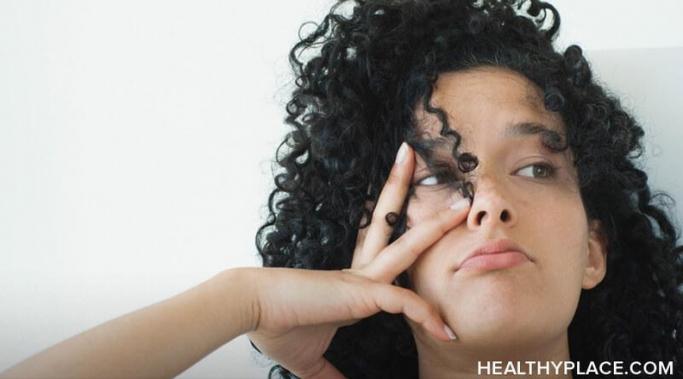Blogs
How can you learn to like yourself? Get easy tools to start liking yourself, even loving your body and mind, to build a positive sense of self.
I'm here to tell you that trauma affects your brain. Even so, have you ever had someone say to you any of these things:
"PTSD isn't real; it's all in your head"
"Just get over it already!"
"Only veterans get PTSD"?
I speak all over the country about PTSD symptoms. Mostly, these audiences are comprised of civilians: survivors, caregivers and healing professionals. Sometimes, too, there are people who have no PTSD connection but have been invited to hear the presentation. Inevitably, whether it's before the presentation has started or after it has finished someone addresses me to say some variation of one of those three things (on a really awful day, all three!).
Why don't people "get" what it means to struggle with PTSD? Why can't they understand that trauma affects the brain as well as the mind?
All self-harmers know that they are professionals when it comes to lying about self-injury scars (Explaining Self-Injury Scars to Others). The first time I made up a story was when a student asked me about the cut on my forearm before Chorale practice. I rolled my eyes and told her a story about how I’d tried to balance my cat on my arm and it hadn’t worked out too well. After that lie had been said, I remembered how she’d been around my cats before and she may have realized they had been de-clawed.
An unexpected break-up, past criticisms, the calorie intake in a meal, the amount of money sitting in a bank... These are all examples of everyday topics that often result in consuming, repetitive and persistent thoughts. Why do we develop obsessive thought patterns and how can we free ourselves from them?
I'll be honest, I'm a little worried about my neighbors. I live in an apartment complex for adults with severe mental illness; it's one step above a group home. This leads to some quite strange interactions, which raise the question of "When does the right to privacy hurt?"
People with bipolar disorder, regardless of medication, are, on average, heavier than the average person. This is likely due to sedentary lifestyles and poor dietary choices due, in part, to reduced income. I suspect it’s also because of untreated and undertreated people exhibiting major depression and never getting off the couch (something I know a lot about).
But then, of course, there are the side effects from medication and one of the big ones that effects people drastically is weight gain. Antipsychotics, in particular, can make a person put on a lot of weight and fast. (Tip: the antipsychotic that was newly approved in bipolar disorder, lurasidone, has been shown to be weight-neutral.)
And while many people work very hard to try to lose it, the fact of the matter is, most can’t. Losing weight is something that is tough in the average population let alone in a medicated one. So sometimes, acceptance is the only answer.
Every October, I participate in the suicide prevention walk hosted by the American Foundation for Suicide Prevention (AFSP), and every year I raise money for them, feeling as if I’m doing my part to somehow prevent all of the suicides that happen every day. Lately, though, it seems as if I’ve been hearing more and more about suicides and less about suicide prevention.
When I reflect on the years I struggled through my eating disorder; bulimia, and its recovery, it reminds me of how resilient human beings can be. In extreme times, whether tough or the opposite, I sometimes find myself appreciating my own inherent resolve not to self-harm.
Hiya parents! As school has been in session a little over a five weeks, I wanted to share some tips to help your special needs child in the classroom. One of the biggest challenges parents of children with mental illness have is dealing with issues in the classroom. How can you possibly work on something with your special needs child if you're not even in the classroom? Well, these are tips that can help you help your special needs child.
I Understand Anxiety. I Live With It
As an emotional human being (aren’t we all?), I’m excited to be writing the Anxiety Schmanxiety blog. Typical of me, I’m also fretful about it. Will what I write be good enough? Will it be helpful? Will readers want to leave comments and interact? What if everyone judges me harshly? Of course I’m imaging an array of negative consequences including certain demise for me and, quite possibly, for you. But don’t worry! I’ve been dealing with this for a long time so I’m used to it. It’s under control – for the most part (I mean, the anxiety is still there, but I’ve learned ways to keep it from ruling me).







